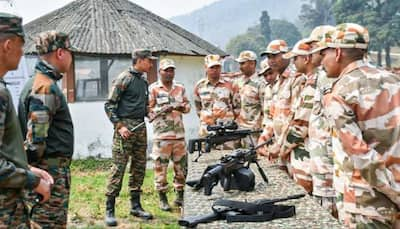In the wake of growing tensions between India and Pakistan after the April 22 terror strike in Pahalgam, the Centre has asked several states to hold full-scale civil defence mock drills on Wednesday, May 7. This is the first time since 1971 — the year of Indo-Pak war — that such nationwide preparedness exercises are being held. The Ministry of Home Affairs (MHA) gave instructions for conducting these drills to increase public readiness in case of a hostile attack. The proposed steps are as follows:
The action follows day-to-day cross-border ceasefire breaches by Pakistan, now entering the 11th straight night. Ever since the Pahalgam massacre, in which 26 civilians were killed by Pakistan-sponsored terrorists, India has delivered several stern replies both militarily and diplomatically.
MHA has asked several states to conduct mock drills for effective civil defence on 7th May. The measures to be taken during the drill include operationalisation of Air Raid Warning Sirens, Training of civilians, students, etc, on the civil defence aspects to protect themselves in…
— ANI (@ANI)
In Ferozepur, Punjab, a blackout exercise was held last night, with the lights being turned off in the cantonment region between 9:00 and 9:30 pm. Local officials made sure that security arrangements were made during the time of complete darkness.
A letter from the Cantonment Board said that the objective was to “ensure preparedness and effectiveness in implementing blackout procedures during prevailing war threats.”
Prime Minister Narendra Modi is still conducting top-level defence meetings to assess the situation. On Monday, he met Defence Secretary Rajesh Kumar Singh, a day after meeting Air Chief Marshal Amar Preet Singh. The Prime Minister has also met with the Army and Navy chiefs in the past few days.
PM Modi has pledged “unimaginable punishment” to the people behind the Pahalgam attack, referring to it as the worst terror attack in Jammu and Kashmir after Pulwama in 2019. Defence Minister Rajnath Singh added strength to the government’s resolve, saying, “What you desire will certainly happen.”
India has already taken a number of diplomatic steps against Pakistan, including suspending the Indus Waters Treaty — a step not taken even during the 1965 and 1971 wars or the 1999 Kargil War. Indian officials have also reduced the number of Pakistani diplomats in New Delhi.
In response, Pakistan has warned that suspension of water flow would be considered an act of war and threatened that all bilateral agreements, including the Simla Agreement on which the existing Line of Control (LoC) arrangement is based, would be suspended.
If Pakistan pulls out of the Simla Agreement, it may destabilize the legal status of the LoC and further exacerbate the existing military tension. Pakistan has also breached the 2003 ceasefire agreement for 11 consecutive nights, discrediting the efforts to de-escalate hostilities.
Stay informed on all the , real-time updates, and follow all the important headlines in and on Zee News.








